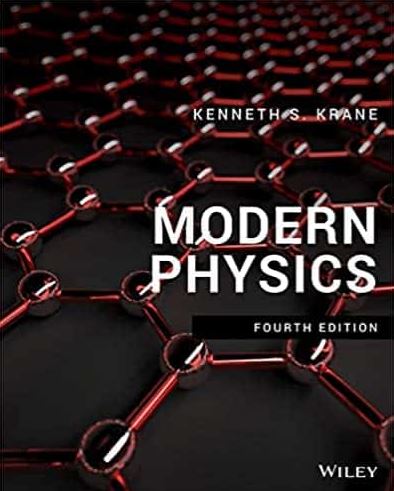Modern Physics Krane 4th Edition Pdf isbn 9781119495550 :
modern physics krane 4th edition One of the field’s most respected introductory textbooks, Krane’s Modern Physics 4e pdf offers a deep exploration of fundamental theory and experimentation. Suitable for second-year undergraduate science and engineering students, this esteemed modern physics by kenneth krane provides a comprehensive introduction to the concepts and methods that form the foundation. of modern physics pdf, including examinations of relativity, statistical physics, nuclear physics, high energy physics, quantum physics, astrophysics, and cosmology. A balanced pedagogical approach explores major concepts first from a historical perspective, then via a modern lens using relevant experimental evidence and discussion of recent developments in the field. The focus is on the interrelationship of principles and methods that provides continuity, creating an accessible “storyline” for science students to follow.
pedagogical tools on the Textbook:
Many pedagogical tools in modern physics krane 4th ed aid in comprehension, motivating college students to think critically and strengthen their ability to apply conceptual knowledge to practical applications. Many exercises and worked examples reinforce fundamental principles.
who is kenneth krane?
Kenneth Krane, a Professor Emeritus of Physics at Oregon State University, is a prominent experimentalist in nuclear physics, and he is the Alumnus of the Year for the College of Science. Krane’s fascination with the role of laboratories in teaching physics began during his UA undergraduate years.
Preface of modern physics by kenneth krane :
krane modern physics 4th edition is meant to serve as a first course in modern physics, including relativity, quantum mechanics, and their applications. Such a course often follows the standard introductory course in calculus-based classical physics. The course addresses two different audiences: (1) Physics majors who plan to take a more rigorous course in quantum mechanics will benefit from taking an introductory modern course to prepare them for the rigors of their upcoming coursework in classical mechanics, thermodynamics, and electromagnetism. (2) Nonmajors, who may not take any additional physics classes, find an increasing need for modern physics concepts in their disciplines. A classical introductory course is not sufficient background for chemists, computer scientists, nuclear and electrical engineers, or molecular biologists Necessary prerequisites for undertaking the text include any standard calculus-based course covering mechanics, electromagnetism, thermal physics, and optics. Calculus is used extensively, but no previous knowledge of differential equations, complex variables, or partial derivatives is assumed (although some familiarity with these topics would be helpful).
Chapters 1–8 of the textbook :
constitute the core of the text. They cover special relativity and quantum theory through atomic structure. At that point, the reader may continue with Chapters 9–11 (molecules, quantum statistics, and solids) or branch to Chapters 12–14 (nuclei and particles). The final chapter covers cosmology and can be considered the capstone of modern physics krane as it brings together topics from relativity (special and general) as well as from nearly all of the previous material covered in the text.
NOTE: The product only includes the ebook, Modern Physics, 4th edition in PDF. No access codes are included.






Reviews
There are no reviews yet.